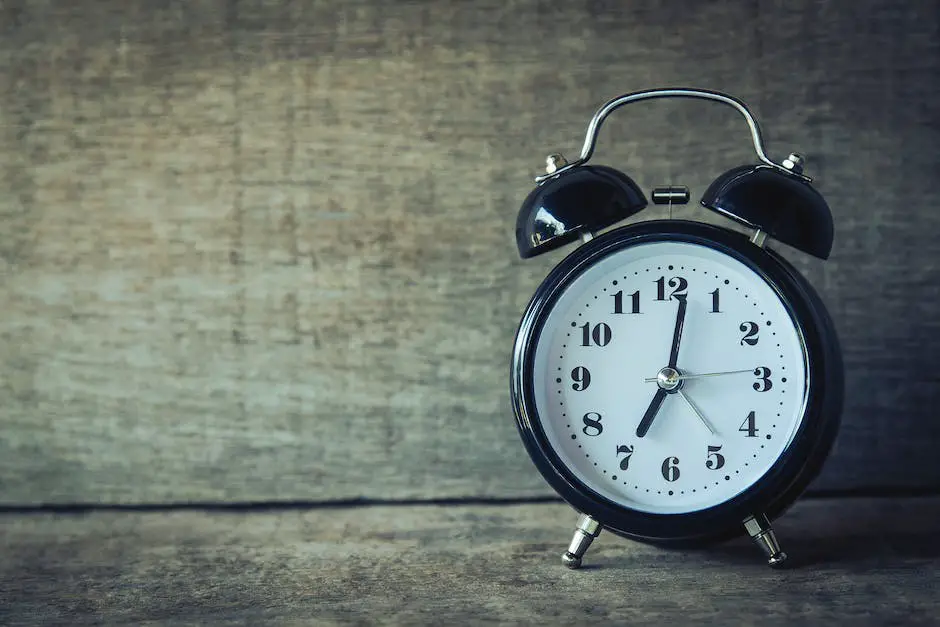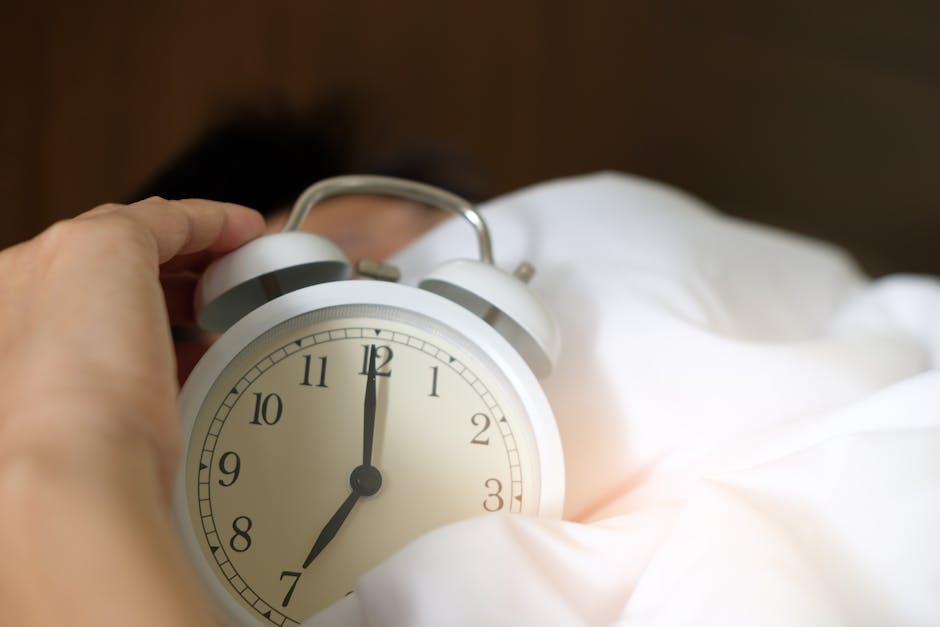Oversleeping before a crucial job interview is an unfortunate yet common occurrence that has the potential to derail one’s chances of securing the position. It not only taints first impressions but also sends a message of unreliability and lack of preparedness. In this article, we seek to better understand the phenomenon of oversleeping, explore its consequences on job interviews, and provide creative excuses, recovery strategies, and preventive measures to help mitigate the negative impact of this common misfortune.
Understanding Oversleeping
Sleep and Oversleeping
Sleep is an essential need for all human beings, and getting the right amount of sleep is critical for good health. However, oversleeping, or sleeping for longer than the recommended amount of time, can cause problems in a person’s life, particularly when it comes to attending important events such as job interviews. Understanding the causes and biological factors behind oversleeping can help people better manage their sleep schedules and avoid unintended consequences.
Causes of Oversleeping
One major cause of oversleeping is sleep deprivation. When an individual consistently fails to get enough sleep, their body will try to make up for the lost time by sleeping longer during subsequent sleep periods. This can throw off a person’s sleep schedule and lead to difficulties in waking up at the desired time. In cases where a sleep-deprived person has an important event like a job interview, oversleeping can seriously impact their punctuality and may even cost them the opportunity.
Another factor that contributes to oversleeping is the body’s internal clock or circadian rhythm. This natural timer regulates when a person feels sleepy and when they feel alert. When a person’s circadian rhythms are disrupted, perhaps due to shift work or jet lag, they may experience difficulty waking up at the right time or feel excessively sleepy during waking hours. If this disruption affects an individual’s ability to wake up for a job interview, it could be a legitimate reason for oversleeping.
Certain medical conditions or sleep disorders can also cause oversleeping. For instance, individuals with sleep apnea experience disrupted sleep due to irregular breathing, which can cause exhaustion and, as a result, prolonged sleep. Additionally, people suffering from depression may sleep more than usual as a symptom of their mental health disorder. In these cases, oversleeping is not simply a matter of laziness or poor time management but rather a consequence of a medical condition that the individual may be coping with.
Lastly, lifestyle and environmental factors can contribute to oversleeping. Consuming alcohol or certain medications, for example, may lead to drowsiness and disrupted sleep patterns, making it difficult for one to wake up on time. Moreover, a noisy or uncomfortable sleeping environment can interfere with a person’s sleep quality, leading to extended sleep periods in an attempt to compensate for the poor sleep.
Understanding Oversleeping Causes
There are numerous causes and biological factors that contribute to oversleeping, and it is crucial for individuals to understand the underlying reasons behind this phenomenon. By addressing sleep deprivation, adapting to changes in circadian rhythms, managing medical conditions, and improving sleep environments, people can reduce the risks associated with oversleeping and be prepared for important events like job interviews. Being informed about these potential causes can also help employers and hiring managers better assess a candidate’s punctuality related to oversleeping excuses.

Impact of Oversleeping on Job Interviews
The Impact of Oversleeping on Job Interviews
One significant negative consequence of oversleeping and arriving late to a job interview is the damage it causes to the crucial first impression candidates are expected to make. Being late due to oversleeping indicates a lack of punctuality, a vital quality that potential employers seek in candidates, as it demonstrates effective time management and commitment to professional responsibilities. This poor first impression may lead to the employer questioning the candidate’s reliability and trustworthiness, ultimately influencing their decision-making process when selecting a new hire.
Another problem arising from oversleeping on the day of a job interview is increased stress and anxiety levels. The candidate may already be nervous about the interview; however, their tardiness can heighten those feelings as they may have a sense of shame for their tardiness. This stress can impact their overall confidence and ability to present themselves positively during the interview. Additionally, candidates may also need to apologize for their tardiness, resulting in a potentially uneasy start to the interview. This can give the impression that the candidate is ill-prepared and disorganized, thus further affecting their chances of being hired.
Not only does arriving late to a job interview due to oversleeping reflect poorly on the candidate, but it also negatively impacts the interviewer’s perception of the candidate’s overall suitability for the job. Employers place a high value on professionalism, which includes punctuality, and a late arrival can be seen as a sign that the candidate lacks the professionalism required for the role. In a competitive job market, where first impressions can make or break one’s chances of being hired, demonstrating a lack of professionalism can be enough for an employer to decide not to consider that candidate further.
Moreover, oversleeping can also affect the candidate’s ability to be fully prepared and present for the interview. A candidate who shows up late due to oversleeping may not have the time or presence of mind to fully review their notes, gather their thoughts, or ensure their appearance is professional and polished – all factors that contribute to a successful interview. This lack of preparedness may become evident during the interview if the candidate stumbles over their answers or forgets to mention critical points, which could negatively affect their chances of being hired.
Arriving on time for a job interview is an important indicator of a candidate’s professionalism and a reflection of their respect for the interviewer’s time. Tardiness can often suggest that the applicant may not highly value the time and effort put into the hiring process by the employer. This behavior could be perceived as a potential red flag regarding the candidate’s future conduct as an employee, causing the employer to reconsider hiring them for the position.

Creative and Believable Excuses
Oversleeping for a Job Interview? Here are Some Believable Excuses
Everyone has a day now and then when they oversleep, and it can be embarrassing when it happens before a job interview. Finding an honest and acceptable reason for being late is essential for making the best impression possible and trying to rectify the situation.
Alarm Clock Malfunction
One believable reason for this issue could be that your alarm clock malfunctioned. While alarm clocks are generally reliable, there are instances when they can fail. For instance, you could explain that you had a power outage during the night, which caused your electronic alarm clock to reset and not go off at the scheduled time. Alternatively, if your alarm relies on batteries, you could mention that the batteries unexpectedly ran out, leaving your alarm silent.
Minor Health Issue
Another potential excuse is that you were dealing with a minor health issue that caused you to sleep through the alarm. This could be anything from a mild headache to a temporary bout of insomnia the night before. People often understand that health issues are not always predictable and can be sympathetic to their impact on daily life. In this scenario, make sure to emphasize that the situation was a rare occurrence and that you are taking steps to prevent it from happening again in the future.
Personal Emergency
You could share that a personal emergency arose, which caused you to stay up late or be preoccupied and forget to set your alarm. For instance, you could say that a family member or close friend had an urgent situation that required your immediate attention, like medical or legal assistance. Owing to focusing on the urgent matter, you accidentally failed to set your alarm or slept through it because you were exhausted from helping. Asking for rescheduling or understanding can make the employer consider your dedication and commitment to important situations.
Transportation Issues
If you are someone who typically relies on public transportation, you could use this to your advantage when explaining your tardiness. For example, you might say that you were planning to catch a train or bus to the interview, but unfortunately, you overslept and missed it. In the haste of trying to find an alternate form of transportation and still make it on time, you failed to notify your potential employer. Employers appreciate honesty, and they may empathize with your situation since public transportation can be unpredictable.
Scheduling Conflict or Misunderstanding
Another option is to claim that you had a scheduling conflict or misunderstanding, one that led to you oversleeping. You might say that you have multiple interviews or appointments and mixed up the time slots for each, leaving you with less time to prepare than you originally thought. This explanation also demonstrates your ongoing job search efforts outside of their company, which can show dedication and focus on career development. Employers understand that interviewing candidates are often juggling many responsibilities and may appreciate your honesty in trying to manage a busy schedule.

Recovery Strategies for Late Interviews
One of the most important aspects of recovering from oversleeping and being late to a job interview is effective communication with the interviewer. As soon as you realize you will be late, immediately contact the interviewer or HR representative and apologize sincerely for your oversight. Offer an honest explanation of the reason for your tardiness, utilizing one of the above-described excuses if they apply to your situation, and provide an updated time of arrival. Approaching the issue proactively and taking responsibility for your actions may help to mitigate any negative impact that your tardiness might have on the interview process.
During this initial communication, it is crucial to express genuine remorse for any inconvenience caused and to demonstrate your continued enthusiasm for the opportunity to interview with the company. While oversleeping is less than ideal, showcasing a professional attitude and the ability to handle setbacks will be beneficial for recovering the situation. Furthermore, assure them that this is a one-time, unforeseeable incident and that punctuality is a value you uphold in your professional life.
Once you arrive at the interview, thank the interviewer for their flexibility and understanding regarding your tardiness. Quickly address your late arrival and reiterate your apology, but do not dwell on the matter for too long. Instead, focus on shifting the conversation towards your qualifications and interest in the position, as well as any research you have done about the company. This will not only emphasize your seriousness about the job but also demonstrate your ability to recover gracefully from unexpected challenges.
To make up for the lost time, it is crucial to be concise, clear, and engaged during the interview. Be prepared to answer questions confidently and provide relevant examples from previous experience that illustrate your skills and suitability for the role. Pay close attention to the questions asked, and answer them directly and succinctly to respect the constraints of the adjusted interview schedule. Make sure to ask thoughtful questions about the company and the job, as this will show your genuine interest and aptitude for the role.
Following the interview, it is highly recommended to send a personalized thank you email to the interviewer. Mention the key points you discussed during the conversation and emphasize how your qualifications and enthusiasm match well with the role. Also, express your gratitude for their understanding of your late arrival and any necessary changes they had to make due to unforeseen circumstances. This gesture not only shows your appreciation but also highlights your commitment to the position and conveys your genuine interest in the opportunity.

Preventing Oversleeping Before a Job Interview
Ensuring a Proper Sleep Before a Job Interview
The significance of a good night’s sleep before a job interview cannot be overstated. A well-rested state can make you more alert, focused, and prepared for the crucial day. However, oversleeping can have negative consequences, like causing you to be late or disoriented during the interview. To prevent oversleeping excuses, it is vital to establish and follow healthy sleep habits that guarantee you will wake up on time and feel well-rested for your job interview.
Establish a Consistent Bedtime Routine
To start with, it’s essential to have a consistent bedtime routine. Going to bed at the same time every night, even during the weekends, helps to regulate your body’s internal clock, making it easier for you to fall asleep and wake up at the right time. In the days leading up to the interview, make it a point to get at least 7-9 hours of sleep each night to ensure that your body is well-rested and ready for the day ahead. Limiting your caffeine and alcohol intake, particularly in the hours before bedtime, can also significantly improve your sleep quality.
Prepare for the Interview the Night Before
Another useful strategy to avoid oversleeping is to prepare everything for your interview the night before. Lay out your clothes, iron them if needed, and get your documents and portfolio ready. This prevents you from feeling stressed or rushed on the morning of your interview, leading to a more restful sleep. Additionally, setting a specific time to mentally rehearse your answers to potential interview questions or going over important information about the company can help with anxiety that may impact your sleep.
Use an Effective Alarm System
An effective alarm system is crucial for timely waking, especially on the day of a job interview. Set multiple alarms with different tones, placed at various locations in your room. The combination of several alarms and different sounds will make it more difficult for you to snooze through them all. If you’re a heavy sleeper, consider an alarm that involves some physical activity like solving a math problem or completing a puzzle to fully awaken your senses and mental faculties.
Enlist the Help of a Family Member or Roommate
Finally, consider enlisting the help of a family member or roommate to ensure you are up and awake at the right time. This extra layer of backup can provide you with peace of mind, knowing that someone will check on you and make sure you’re ready for the day. Remember that the key to avoiding oversleeping excuses lies in establishing healthy sleep habits, being well-prepared, and having a reliable alarm system in place. These combined strategies will ensure you arrive at your job interview on time, refreshed, and ready to make a great impression.

Ultimately, preventing oversleeping before a job interview is the most effective way to ensure timely attendance and make a positive first impression on potential employers. By implementing healthy sleep habits, being well-prepared the night before, and using strategic alarm systems, job seekers can reduce the likelihood of oversleeping and maintain their competitive edge in the job market. However, should the unfortunate situation occur, understanding the reasons behind oversleeping and employing creative excuses and recovery strategies can help salvage the interview and possibly even turn it into a memorable and unique opportunity to demonstrate resilience and adaptability.

Recent Comments